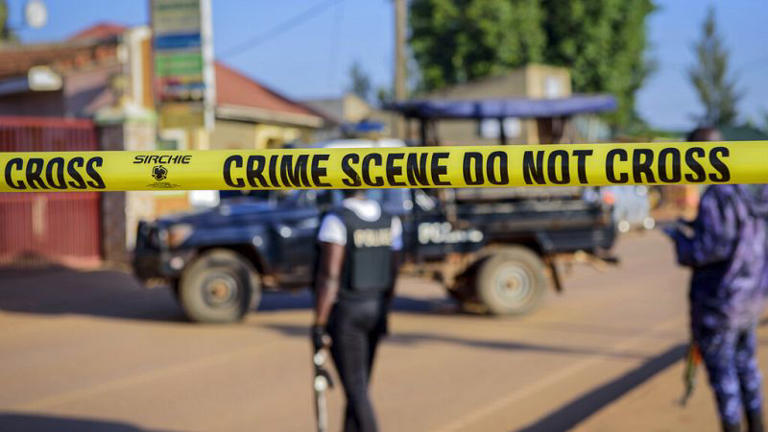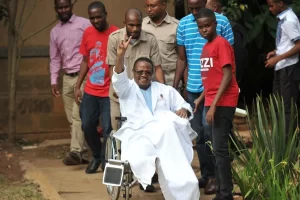
A troubling wave of political violence in Tanzania, marked by recent abductions, arrests, and the brutal killing of an opposition official, is overshadowing the initial hopes sparked by President Samia Suluhu Hassan’s ascent to power in 2021. While her presidency initially brought relief to opposition parties, allowing them to organize rallies and voice criticisms without fear of severe consequences, many now fear that the country is slipping back into the autocratic practices of her predecessor, John Magufuli.
The situation has escalated alarmingly in recent weeks, with two senior opposition leaders facing multiple arrests. Notably, Ali Kibao, a member of the opposition, was abducted and later found murdered, his body doused in acid by unknown assailants. This violent incident has deeply unsettled the political landscape, prompting concern from leaders within the main opposition party, Chadema.
Tundu Lissu, the deputy leader of Chadema, expressed his distress over the current political climate. Speaking to the BBC shortly before his own arrest during a planned protest against Kibao’s killing, Lissu stated, “The political situation in Tanzania is worrisome in the extreme.” His remarks reflect a growing sentiment among opposition members that the state is resorting to tactics reminiscent of the oppressive climate between 2016 and 2020, during Magufuli’s rule.
In a chilling reminder of past violence, Lissu himself survived an assassination attempt in 2017, where he was shot multiple times. After receiving treatment abroad, he returned to Tanzania last year, hoping to contribute to a new political chapter following the lifting of bans on rallies. However, his optimism has waned as he now views the promised reforms under President Samia as little more than a façade. “There have been no reforms whatsoever. No reforms of a democratic nature,” he lamented.
The violence appears to be politically motivated, with Lissu alleging connections to security forces. He warned that these developments could signal even more severe repression ahead. While police have denied any involvement, the ruling Chama Cha Mapinduzi (CCM) party has remained silent on the accusations, further fueling suspicions.
The international community is closely monitoring the situation. Rights groups and Western diplomats have called for an end to arbitrary detentions and have demanded thorough and transparent investigations into the recent killings. President Samia has publicly condemned Kibao’s murder and has called for prompt investigations, but her administration’s image is suffering under the weight of these events.

In a statement, she emphasized, “Our country is a democracy, and every citizen has the right to live.” However, her warning to “outsiders” against interference in Tanzania’s internal matters may indicate a reluctance to fully acknowledge the extent of the crisis.
Political analysts suggest that a significant lack of goodwill between Tanzania’s main political parties is hindering meaningful dialogue and reform. While President Samia has expressed a desire for reconciliation, the opposition’s confrontational stance may complicate the potential for productive negotiations. Thomas Kibwana, a Tanzanian political analyst, noted that it is crucial for both sides to engage in constructive discussions to move forward.
At the outset of her presidency, Samia’s commitment to her “four Rs” mantra—reconciliation, resilience, reforms, and rebuilding—gained her both local and international praise. Her efforts to foster unity have included public engagements with opposition leaders, and billboards promoting her image as a president for all Tanzanians have emerged throughout the capital, Dodoma.
However, with elections looming, President Samia’s leadership will be put to the test. As a member of the CCM party, which has historically dominated Tanzanian politics since independence in 1961, her actions leading up to the upcoming local government elections and the presidential elections next year will be closely scrutinized.
The second-largest opposition party, ACT-Wazalendo, suggests that fears of losing power are impeding genuine reform. Party leader Dorothy Semu remarked that some within the CCM are wary that reforms could lead to an electoral loss. Nevertheless, she believes that the current political climate is less oppressive than during the Magufuli era, highlighting increased civic space and the ability for political discourse.
Activist Fatma Karume argues that true reform in Tanzania will require significant changes to the legal framework to diminish the president’s powers. “In Tanzania, we have something called an imperial presidency,” she explained, noting that the current administration is less inclined to use oppressive state powers compared to its predecessor.
As Tanzania navigates this complex political landscape, the path toward genuine democracy remains fraught with challenges. The hope for a more open and just society will depend on the ability of political leaders and citizens alike to engage in meaningful dialogue and uphold the principles of democratic governance.







